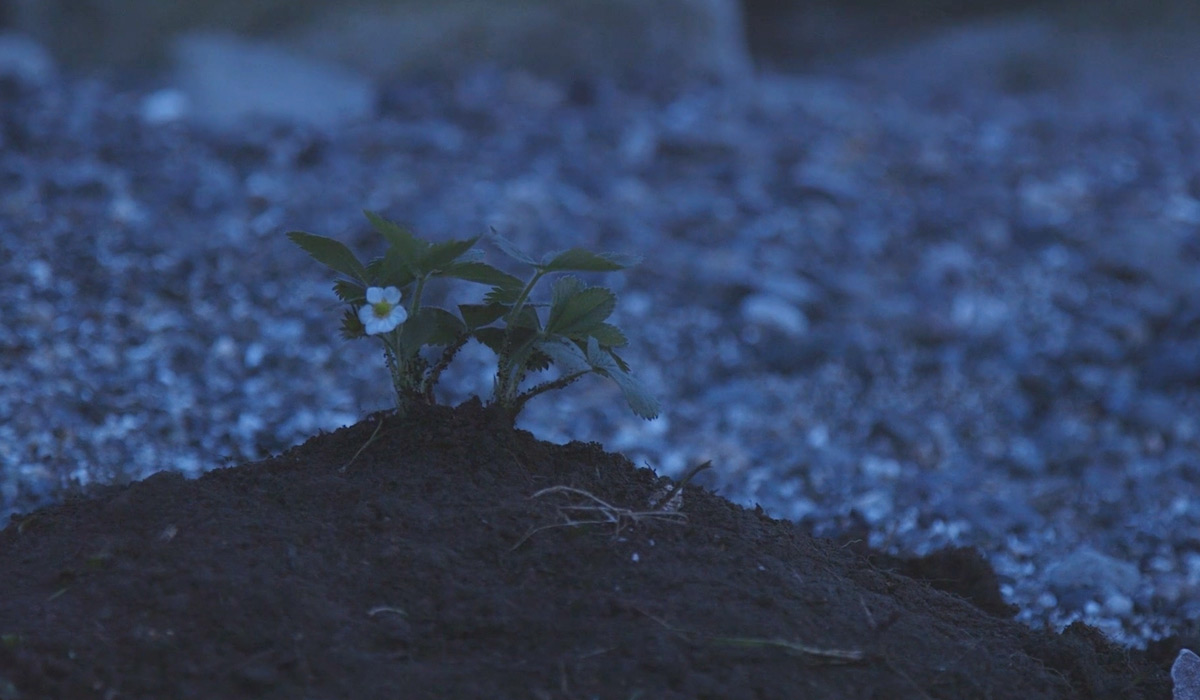A Brave Lament

If our movement toward holiness is intimately connected with the integration of our mind, body, and spirit—as Abby Wong-Heffter wrote about last week—then that movement invites us to open ourselves to the full range of embodied human emotion, whether extravagant joy or heart-wrenching grief. Here, we’re honored to share a reflection on the latter by mental health therapists Andrew and Christy Bauman. The following is an excerpt from their new book, A Brave Lament, which—along with an upcoming documentary film—follows Andrew and Christy in their first year of acute grief after the tragic loss of their son, Jackson Brave Bauman.
Our healing does not look like I thought it would. In fact, nearly eight months since burying our son, our healing does not even look much like healing.
It looks more like survival.
Every day we actually get out of bed, and tie our shoes, we must bless that as enough. At times getting out of bed is the greatest act of faith and courage we can muster during this season of tragedy. These small steps of faith are sufficient.
Mourning requires more than I ever imagined, more than I ever wanted to know. Mourning requires a kindness to my fragility. I am weak, and that is okay, I should be, as I have been through hell. Kindness must come to my broken heart, because it can no longer bear the weight of rage. For I am learning I must grieve to the level in which I loved; my love for my son was so great that my level of grief will be also.
The world (and many times the Church) tells me to move on, but my grief tells me to move in, lean in deeper, and even make friends with the very grief that hurts so acutely. The Apostle Paul reminds us in Romans 8:17: “We share in his sufferings in order that we may also share in his glory.” I think, like most, I want the glory part but without the suffering. I want the splendor of resurrection but without the bloody crucifixion. This is the paradox that few understand: the only way out of suffering, is through it. I must listen to my body as it guides me in this time of sorrow, as I want to live again.
Mourning requires a kindness to my fragility. I am weak, and that is okay.
What does it mean to learn to live again?
To rise after such a bloody crucifixion?
To courageously follow in the painful steps of Jesus?
I don’t want to just survive; I want to live fully. The pain will last a lifetime, yet over time it is softening, just a bit. There are moments now when I catch myself laughing again. It always surprises me. A wave of guilt usually follows. I have to remind myself that my son wants me to experience joy; yes, he wants me to live, he needs me to live, to carry on his brave legacy.
To live again does not mean to forget my heartache, it does not mean not to feel longing or pain—actually, quite the opposite. It means to fully surrender, to become deeply familiar with both pain and desire—not to be consumed by it, but to know it intimately. To see, hear, smell, taste, and touch my deepest fear and sorrow is to become a friend to my longing for my son. Yes, this is what I will strive to attain. This is what it means for me to live resurrected and follow Jesus.
So, our healing will look like not giving up. Our healing will look like living within a larger story. Our healing will mean learning to walk with a hobble, forever changed, forever marked, forever stumbling toward resurrection, all the while allowing our son and the pain of his absence to matter. I am not in fear that my grief will overtake me. I have found that the more I enter it the less power it has. I will not strive to be liberated from my grief, but liberated within my grief. I will still feel deeply sad, and forever ache for my son, but my ache will become integrated with my joy. God is here, in this throbbing darkness. May we all give ourselves permission to follow our mourning and allow the goodness of grief to baptize us unto new life.
Excerpted from A Brave Lament by Andrew and Christy Bauman, p. 111. Used with permission of the author.
